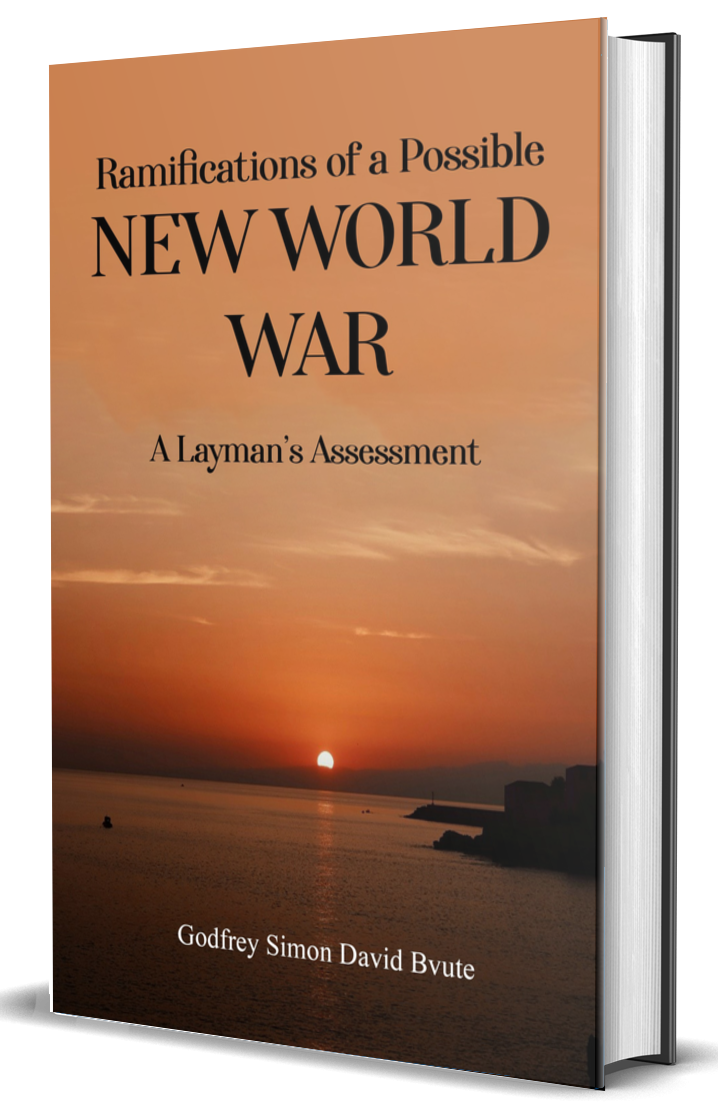Contrary to popular belief, World War II was a catastrophic worldwide conflict.
Decades after it ended, we still witness unsettling remnants of those gloomy times: growing nationalism, escalating military conflicts, economic crises, and a disintegrating international order.

Even though there is a lot of striking evidence of the severity of World War II, we are still on the verge of another world war. For example, the ongoing conflict in Ukraine serves as a stark warning, a potential catalyst for a much wider war, as Godfrey Simon David Bvute cautions in Ramifications of a Possible New World War.
One key lesson of World War II was the danger of economic instability, where the Great Depression fueled extremist ideologies. Today, we again face financial instability, with inflation, trade wars, and economic inequality breeding political discontent. As Bvute notes, economic motivations often underlie international conflicts, and the current global economic climate creates fertile ground for more instability, where countries facing hardship are increasingly turning to nationalism, similar to the 1930s.
Before World War II, leaders like Hitler and Mussolini exploited public frustration to implement their ruthless and aggressive policies. Today, we witness a resurgence of authoritarian governance, with many leaders consolidating this power. They suppress dissent and undermine democratic norms—without thinking of the good of others. All they think about is themselves and how their dictatorship will benefit them in the best possible ways. Bvute’s analysis of the role of political ideologies in global conflicts highlights how easily such leaders can manipulate narratives and escalate tensions between the countries, leading to more economic disparities.
The geopolitical landscape is also shifting in alarming ways. For example, military alliances, territorial disputes, and superpower tensions are back on the agenda in the war in Ukraine. As Bvute emphasizes, it is not an isolated incident but a symptom of deeper geopolitical fault lines, where US-China tensions, conflicts in the Middle East, and other regional instabilities point towards a world drifting towards confrontation rather than diplomacy.
Perhaps most disturbing is the normalization of war rhetoric. Just as in the 1930s, world leaders spoke of military action as almost inevitable. The arms race is accelerating, with nations developing new weapons, stockpiling nuclear arsenals, and engaging in proxy wars just to recognize themselves on a global scale. Be it Russia’s war on Ukraine or Israel’s attempt to seize Palestine by dropping bombs, as Bvute warns, the risk of nuclear conflict and the ongoing wars is a very real and present danger—that we all should look up to and stop from happening.
Instead of the harrowing consequences, we should learn from World War II. For example, it resulted in the establishment of institutions like the United Nations, which are intended to keep the peace, as well as the demonstration of how diplomacy, economic cooperation, and international agreements can prevent disaster.
Throughout his book, Bvute advocates for continuous dialogue and peaceful conflict resolution. Instead of war and increased arms cooperation and exchange, he emphasizes that war is not necessary and that with collaboration, dialogue, and peaceful conduct, we can all reach a certain point where every country can benefit and where no life will be displaced or lost in the wake of war.
The question is: will we learn from the past, or are we destined to repeat its mistakes? The choice is yours to decide. Will we rise to the challenge of peace, or will we succumb to the siren call of war? For more information and insight, please read Ramifications of a Possible New World War.
Ramifications of a Possible New World War: A Layman’s Assessment explores a timely and accessible analysis of escalating global tensions, particularly in light of the conflict in Ukraine. This book discusses the historical context of East-West conflicts, the economic and military ramifications of war, and the ever-present threat of nuclear catastrophe. Through detailed insight, research, and historical examples, Bvute explores the complex interplay of political ideologies, economic motivations, and military strategies that contribute to global instability and increasing tension.
Crucially, he also advocates for diplomacy and peaceful conflict resolution, offering a message of hope amidst the growing uncertainty. If you are looking for a book that will help you understand the cost of war while raising public awareness about the possibility of global conflict and empowering readers to participate in informed discussions about war, peace, and our world’s future. In that case, this book will indeed be a valuable resource.